Monthnotes: September 2024

Every month or so, I share a quick digest of my recent creative inputs and outputs. Here's the latest. More in the series here.
It's been a little while since I wrote, I know. I didn't send a newsletter in August because I thought I was about to release something and I was going to wait for that, but then it got pushed back a month, so here we all are.
I've spent the last couple of months spinning lots of different plates. I've been working on projects with Rethinking Economics and Scientific American, as well as my ongoing work with Possible and Mojang. I've also been pushing forward a couple of chunky Loud Numbers projects (more on which below), playing shows, and prepping for a big family visit.
It has been busy, in a Jevons Paradox kind of way. But for now it feels like a good kind of busy - invigorating, rather than exhausting. Let's hope that sticks.
Biggest news first. Regular readers will remember that earlier this year I played a trio of live shows themed around a sonification of an 1859 solar storm called The Carrington Event. I've written a few times that I've been working on a recording of the piece, and that recording is released - today!

Batten down the hatches, and go give it a listen. That link takes you to a page on the Loud Numbers website that explains the project in (a lot of) depth and has an embedded player. There's also a Bandcamp page, where you can pay whatever you want (including nothing) to buy a high-quality recording that'll be yours forever.

A little background: This is a project that I've been working on for almost a year, in partnership with Ben Dexter-Cooley (a.k.a. St Silva). We were both interested in exploring live data sonification, and we hit on the idea of creating two independent pieces of music from the same dataset. We performed those musical pieces earlier this year, then we both created recordings, and now we're releasing them on the French netlabel Camembert Electrique.
But that's not all. I've also been working with amazing Touchdesigner wizard Simon David Rydén on a video experience that goes along with the music. Quite honestly, I'm more excited about that video than anything I've done in a very long time and I can't wait for you all to see it. It will be exhibited here in Malmö during Gallerihelg 28/29 September, at the Thrive & Nurture exhibition at STPLN, and it'll be released online the same weekend. We'll do a little YouTube premiere thing on Saturday 28th at 3pm Swedish time, so click through to YouTube here to get a reminder and join us in the chat on the day.
There's a tonne more detail about the whole project, for those who want it, over on the project page on the Loud Numbers website.

A few folks I want to thank, without whom this project would have been impossible. Thankyou to Karen Aplin and Giles Harrison for being so generous with their data. Thankyou to Bryan Noll for helping out with composition and for years of encouragement. Thankyou to Explosions in the Sky, Godspeed You! Black Emperor, Sigur Rós, Hope of the States, Mogwai, Yo La Tengo and Mono for musical inspiration. Thankyou to the Lines community for scripting support. Thankyou to Silfa Hüttner, Konstantine Fioretos, Tessa Ri and John Holmes for feedback on early versions. Thankyou to Magnus @ No+1, Paul Khadra @ STPLN and Rene @ the Blue Moon Triptych for hosting performances. Thankyou to Sorting Room for mastering. Thankyou to Ben Oldenburg for the 3D model of the Stockholm Telegraph Tower. Thankyou to Felicia Hansen and STPLN for hosting the video piece in their exhibition. And finally, a huge thankyou to my primary collaborators on this project - Ben Dexter Cooley, Miriam Quick, and Simon David Rydén.
Ridiculously, that's not the end of my recent musical work. I also performed a short set as part of the EMOM Scania event on 4 September, at Inkonst here in Malmö. I played a space-themed piece, integrating my Norns scripts ufo, gridofpoints, and loudnumbers, and using live data from the International Space Station and a dataset of how many things humankind has sent into space over time.
It was a fun show, and the whole thing was streamed online - so you can watch it back here if you'd like to. Don't miss the other performers too!
During my guitar practice recently, I've found that one of the most effective exercises I can do is start playing something slowly and then gradually speed it up. It's really useful for building muscle memory on chords and arpeggios and other things.
I assumed there'd be some sort of online tool where I could put in my starting tempo and my ending tempo and how long I wanted it to take to transition from one to the other. But my Googling failed to find one.
So I built one. The interface is pretty basic, but it has been super useful for achieving that ramping difficulty thing that I was looking for. The code can be found here, if you'd like to tweak it for you own use.
Five years since I last played, I've been getting back into D&D - running Turn of Fortune's Wheel for some friends here in Malmö. It's a lot of fun so far, with some lovely weird quirks to the campaign and a nice pace of advancement.
It's nice, too, that this coincides with the release of the new rulebooks, which simplify how to play without changing things up too much. While we started on the old system, we're slowly migrating over to the new one and not finding any major issues in the process so far.
Giuseppe shared this excellent two-part breakdown of the energy use of AI in his newsletter, and I highly recommend reading both parts.

The first is a pretty clear-eyed explanation of how AI actually uses about the same amount of energy as many of the other things that humans do (and how different it is from cryptocurrency energy use). Here's a snippet:
A LLM response takes 10-15x more energy than a Google search, sure. But does using a tool like ChatGPT as a research assistant consume more energy than searching for as long as it takes to get the same information? An LLM response just has to save you 10 clicks to break even, so as long as you’re really using it and not just asking something you could easily search yourself, it’s worth it.
The second part is an equally clear-eyed analysis of how major tech companies are doing serious damage to the green transition in a desperate gold rush for diminishing AI returns.
The problem isn’t the tech, it’s the arms race. The tech isn’t inefficient at what it does. Individual consumer choices are not what’s impacting the environment. The cost of AI use at any normal human scale doesn’t waste a problematic amount of energy. The problem is the astronomical cost of creating AI systems massive enough to ensure corporate dominance. Many companies are all trying to develop the same products: an everything app, a digital assistant, a text/image/audio/video content generator, etc. And they’re all doing it in the hopes that theirs is the only one that people will ever use. They actively want their competitors' investment to not pay off, to become waste.
What does this mean for people who use AI from time to time in their work?
it seems like there’s a lot of misplaced anger towards individual users of AI services. Individual users are — empirically — not being irresponsible or wasteful just by using AI. It is wrong to treat AI use as a categorical moral failing, especially when there are people responsible for AI waste, and they’re not the users. The blame for these problems falls squarely on the shoulders of the people responsible for managing systems at scale. Using ChatGPT doesn’t tip that scale. You can’t get mad at people who are being responsible as reaction to other people who are not.
Finally, from back in January, a unified theory of f***s.

You are born with so many f***s to give. However many you’ve got is all there is; they are like eggs, that way. Some of us are born with quite a lot, some with less, but none of us knows how many we have. When we’re young, we go around giving a f*** about all kinds of things, blissfully unaware of our ever-dwindling supply. Until one day, we give the last f*** we’ve got, and we notice that the invisible bag of f***s we’ve been carrying around all these years is finally, irredeemably, empty. We have no more f***s left to give.
That's all for September. Phew. Intense. See you hopefully in the video release chat on YouTube in a week, and if not then in what will hopefully be a much calmer mid-October.
- Duncan




